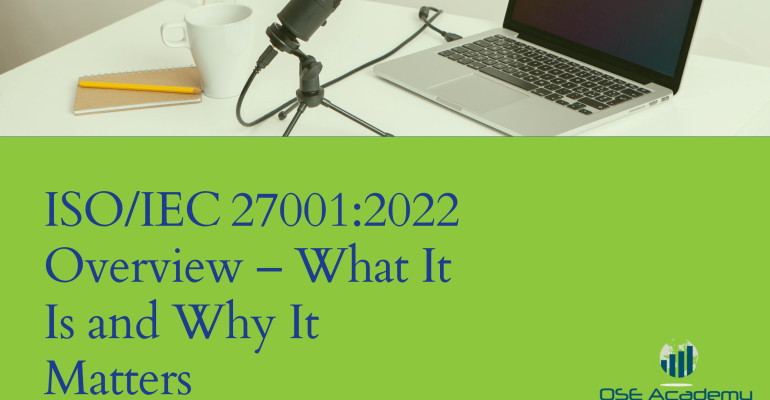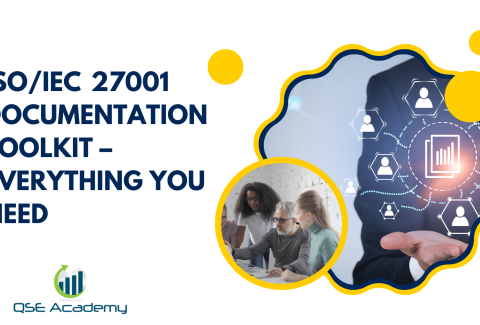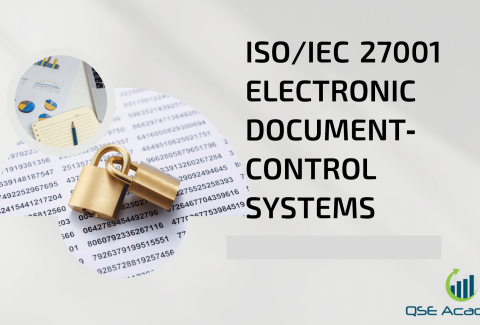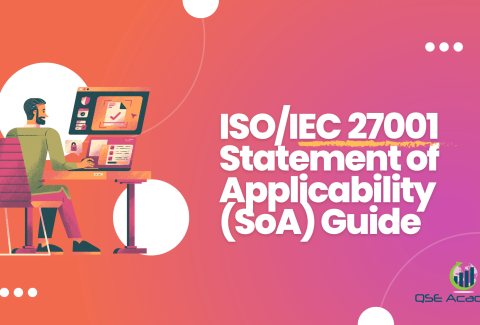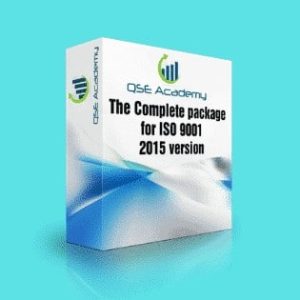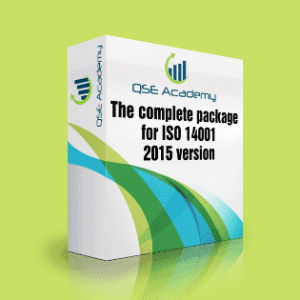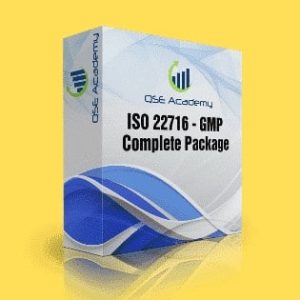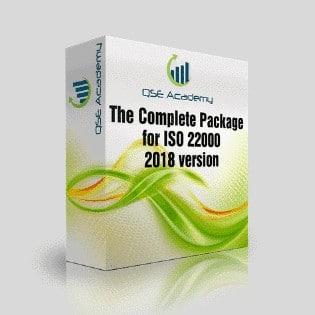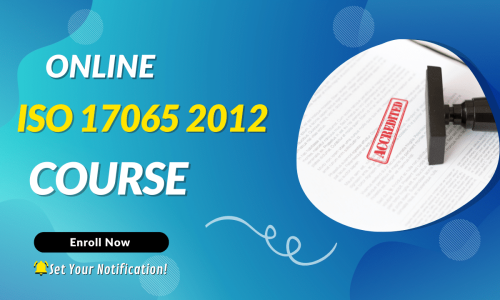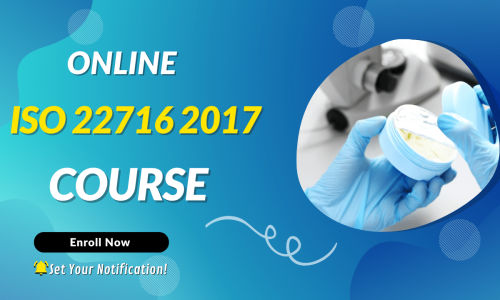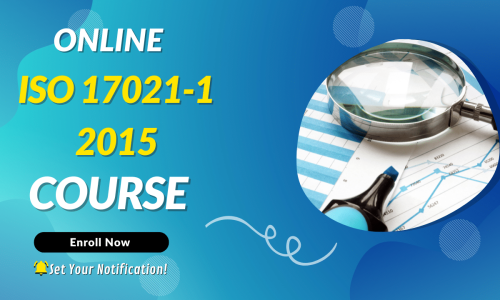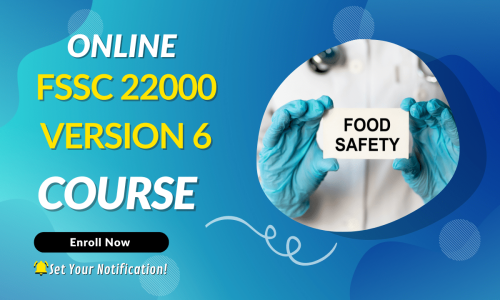ISO/IEC 27001:2022 Overview – What It Is and Why It Matters
Last Updated on December 23, 2025 by Hafsa J.
Introduction
ISO/IEC 27001:2022 is the world’s leading standard for managing information security. It sets out how organisations of all sizes can protect sensitive information against growing threats, comply with regulatory expectations, and build trust with customers and partners. But for many, the standard can feel complex—full of jargon, requirements, and audit processes that seem difficult to navigate.
This guide is designed to make ISO/IEC 27001 clear and approachable. It explains what the 2022 version of the standard is, why it matters in today’s business environment, who needs certification, and the benefits it creates for both organisations and customers. Along the way, we’ll also address common myths, break down key terms in plain English, and show how ISO 27001 connects with related standards like ISO 27701.
By the end, you’ll have a complete overview of ISO/IEC 27001:2022—not just as a compliance framework, but as a strategic tool for resilience, growth, and trust.
What is ISO/IEC 27001:2022?
ISO/IEC 27001:2022 is the international standard for an Information Security Management System (ISMS). It provides organisations with a structured framework to protect sensitive information—whether digital files, physical records, or intellectual property—from misuse, loss, or unauthorised access.
At its core, ISO 27001 is built around three principles often called the CIA triad:
-
Confidentiality – information is accessible only to authorised people.
-
Integrity – information remains accurate, reliable, and unaltered.
-
Availability – information and systems are accessible when needed.
What Changed in the 2022 Update
The 2022 revision modernised the standard to reflect today’s security landscape. Key updates include:
-
Annex A streamlining – controls were consolidated into fewer, clearer categories, reducing duplication.
-
New focus areas – such as cloud services, data masking, and threat intelligence.
-
Stronger risk-based approach – encouraging organisations to adapt controls to their unique environment.
-
Closer alignment with ISO 27002:2022 – ensuring consistency across related guidance.
Why It Matters
The updates make ISO 27001 more practical for modern organisations. Whether dealing with cloud platforms, supply chain security, or regulatory demands, the 2022 version ensures that the ISMS is not just a compliance exercise but a living system that evolves with new threats.
Why ISO/IEC 27001 Matters in Today’s Environment
Information has become one of the most valuable assets an organisation holds—and one of the most targeted. Cyberattacks, data breaches, and regulatory investigations are no longer rare events; they’re part of the daily business landscape. This is why ISO/IEC 27001:2022 is more relevant than ever.
Key Reasons It Matters
-
Rising Cyber Threats – Attacks such as ransomware, phishing, and supply chain exploits continue to grow in scale and sophistication. ISO 27001 provides a systematic way to anticipate and mitigate these risks.
-
Regulatory Pressure – Laws like GDPR, HIPAA, and industry frameworks increasingly demand evidence of strong information security practices. Certification demonstrates due diligence.
-
Customer Trust – Buyers, partners, and clients want assurance that their data will be safe. ISO 27001 acts as a recognised proof point of commitment to security.
-
Resilience and Continuity – Beyond compliance, the framework helps organisations prepare for, respond to, and recover from incidents with minimal disruption.
In Practice
When an organisation is certified to ISO 27001, it signals to the market that security isn’t an afterthought—it’s embedded into how the business operates. This assurance often becomes a deciding factor when customers choose between providers or suppliers.
Who Needs ISO/IEC 27001 Certification?
Not every organisation is legally required to hold ISO 27001 certification, but in today’s business environment, many find it essential. Whether driven by regulation, customer expectations, or competitive pressure, certification increasingly acts as a gateway to trust and market access.
Industries Where Certification is Essential
-
Healthcare – Protecting patient records and aligning with laws like HIPAA and GDPR.
-
Finance and Banking – Safeguarding transactions, customer accounts, and payment systems.
-
Technology & Cloud Providers – Proving data protection for SaaS, hosting, and managed services.
-
Government Contractors – Meeting strict information security requirements for public sector contracts.
SMEs and Growing Companies
Smaller businesses often use ISO 27001 to stand out against larger competitors. Certification demonstrates maturity and reliability, helping them win contracts that require assurance on data protection.
Supply Chain Players
Large corporations increasingly require ISO 27001 certification from their suppliers. Without it, many organisations find themselves excluded from bids or partnerships.
When It Becomes Essential
Common triggers include:
-
Client demands for proof of security.
-
Regulatory obligations.
-
Past security incidents exposing gaps.
-
Business growth requiring stronger, scalable processes.
In short, organisations that handle sensitive, personal, or business-critical data—and want to build trust—are prime candidates for ISO 27001 certification.
Benefits of ISO/IEC 27001 for Organisations and Customers
ISO/IEC 27001 provides more than compliance—it delivers measurable advantages for both the organisation and the people who trust it with information.
Benefits for Organisations
-
Stronger Security and Risk Management – Systematic identification and mitigation of threats, reducing the likelihood and impact of incidents.
-
Operational Efficiency – Clear processes reduce duplication and wasted effort, while audits drive continuous improvement.
-
Regulatory Alignment – Certification supports compliance with GDPR, HIPAA, PCI DSS, and other frameworks.
-
Competitive Advantage – Being certified differentiates the organisation in bids, tenders, and client negotiations.
-
Growth and Scalability – A structured ISMS scales easily as the business expands into new markets.
Benefits for Customers
-
Trust – Certification shows that their data is being handled responsibly.
-
Transparency – Independent audits provide external proof of strong practices.
-
Assurance – Customers feel confident entering partnerships or contracts, knowing information is secure.
Example in Practice
A SaaS provider gained ISO 27001 certification to address enterprise client concerns. Certification not only reassured customers but also helped the company secure several high-value contracts that required proof of security maturity.
Together, these benefits make ISO 27001 both a strategic asset for organisations and a confidence builder for customers.
Myths About ISO/IEC 27001 (Debunked)
Despite its importance, ISO/IEC 27001 is often misunderstood. Clearing up these myths helps organisations see the standard for what it really is: a practical and scalable framework.
-
Myth 1: It’s only for large corporations
In reality, SMEs and startups use ISO 27001 to build credibility and win contracts. The standard scales to fit any size of organisation. -
Myth 2: It’s just an IT standard
ISO 27001 covers people, processes, and governance—not just technology. Policies, supplier management, and staff training are equally important. -
Myth 3: Certification guarantees zero breaches
No standard eliminates risk. ISO 27001 ensures risks are managed and responses are in place, limiting damage if incidents occur. -
Myth 4: It’s too complicated and expensive
While certification requires investment, the framework is flexible. Costs are often offset by reduced incidents and new business opportunities. -
Myth 5: It’s a one-time project
ISO 27001 is built on continuous improvement, with regular audits and reviews to keep the system effective.
These myths discourage many organisations unnecessarily. In practice, ISO 27001 is designed to be practical, adaptable, and beneficial across industries.
Key Terms Explained in Plain English
ISO/IEC 27001 comes with a lot of formal terminology. Understanding a few core terms makes the standard much easier to navigate.
-
ISMS (Information Security Management System)
A structured framework for managing information security risks across people, processes, and technology. -
Annex A Controls
A catalogue of security measures within ISO 27001. Organisations select the ones relevant to their risks and document them. -
Statement of Applicability (SoA)
A document showing which Annex A controls are applied, which are excluded, and why. -
Risk Assessment & Treatment
The process of identifying threats, evaluating their impact, and deciding how to handle them—reduce, accept, transfer, or avoid. -
Top Management Responsibility
Senior leadership is accountable for approving policies, allocating resources, and ensuring information security is a strategic priority. -
Audit Stages
-
Stage 1 Audit: Review of ISMS readiness and documentation.
-
Stage 2 Audit: Full certification audit of policies, controls, and practices.
-
Surveillance Audits: Annual check-ups to confirm ongoing compliance.
-
Recertification Audit: Full reassessment every three years.
-
By translating these terms into plain English, ISO 27001 becomes less about jargon and more about building a practical, working system.
How ISO/IEC 27001 Connects With ISO/IEC 27701
While ISO/IEC 27001 focuses on securing all types of information, ISO/IEC 27701 extends that framework to cover privacy and personal data protection. Together, they provide a comprehensive approach to managing both security and privacy risks.
How They Work Together
-
ISO/IEC 27001 – Builds the foundation: an Information Security Management System (ISMS) that protects confidentiality, integrity, and availability of information.
-
ISO/IEC 27701 – Extends the ISMS into a Privacy Information Management System (PIMS), adding controls for data controllers and processors handling personal data.
Why Organisations Use Both
-
Companies processing significant volumes of personal data (healthcare, finance, cloud services) often need both certifications.
-
Many regulations (e.g., GDPR, CCPA) require proof of privacy governance. ISO 27701 provides this while relying on the structure of ISO 27001.
-
Combining certifications saves time and resources, since policies, risk assessments, and audits can be integrated.
Example Connection
A cloud provider certified to ISO 27001 already demonstrates strong information security. By adding ISO 27701, it can also show regulators and customers that personal data is managed lawfully and transparently—strengthening both compliance and trust.
Together, the two standards ensure organisations address security risks broadly while also meeting rising privacy expectations.
FAQs
What’s new in ISO/IEC 27001:2022 compared to earlier editions?
The 2022 update streamlined Annex A controls, introduced new focus areas like cloud security and threat intelligence, and reinforced risk-based thinking. It’s designed to be more practical for modern organisations.
How long does ISO 27001 certification take?
It varies. Smaller organisations may complete certification in 3–6 months, while larger or more complex operations often take 9–12 months. The timeline depends on scope, resources, and readiness.
Is ISO 27001 certification mandatory?
Not by law for all organisations. However, in many industries—healthcare, finance, technology, and government supply chains—it’s increasingly required by clients, regulators, or contracts.
Conclusion
ISO/IEC 27001:2022 is more than an information security standard—it’s a strategic framework for resilience, compliance, and trust. The 2022 update modernised the controls, strengthened risk-based thinking, and aligned the standard with today’s digital and regulatory realities.
For organisations, certification brings measurable value: reduced risks, stronger efficiency, easier compliance, and greater market opportunities. For customers, it provides the assurance that their data is handled securely and responsibly. Together, these benefits make ISO 27001 not just a compliance requirement but a business enabler.
Next Step: If your organisation is considering certification, start with a gap assessment against ISO/IEC 27001:2022 requirements. From there, explore toolkits, training, or expert guidance to make implementation faster, smoother, and audit-ready.
I specialize in both cybersecurity and quality management systems, with a strong focus on the application of ISO standards in real-world organizational settings. I’ve received extensive professional training in cybersecurity, IT governance, and information security management systems such as ISO/IEC 27001, ISO 20000, and ISO 22301. My expertise also includes ISO 9001 and broader principles of quality assurance, process optimization, and risk-based thinking, helping organizations strengthen both digital and operational resilience. I support businesses in aligning with international standards to ensure compliance, data protection, and continuous improvement across both IT and quality systems. At QSE Academy, I contribute expert content focused on ISO 9001, cybersecurity frameworks, and integrated management systems, turning complex requirements into practical, accessible guidance. I’m passionate about building secure, high-quality environments where compliance and performance go hand in hand.

